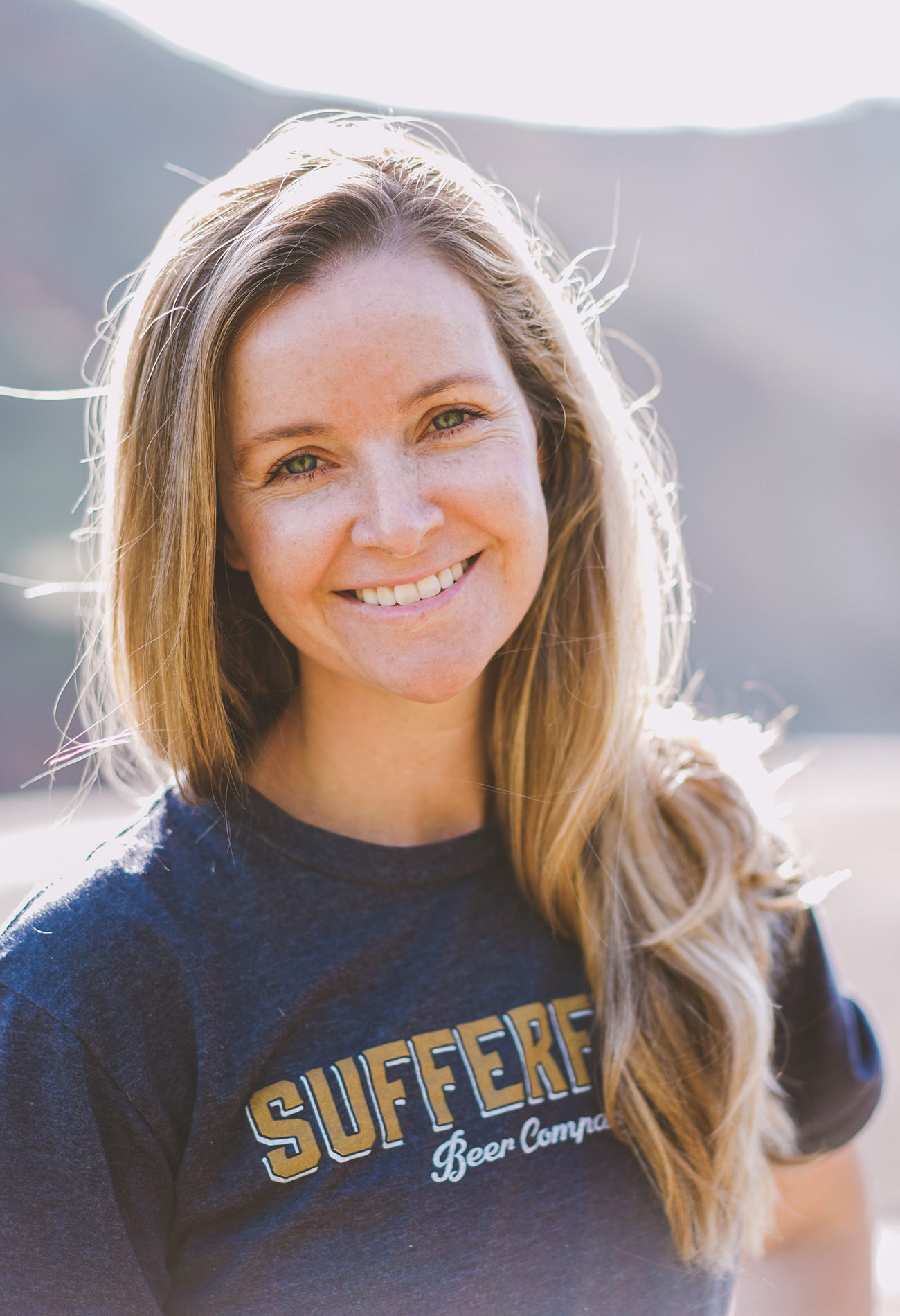A
s an endurance athlete, Caitlin Landesberg loves the camaraderie that follows a race. Everyone grabs a beer, chats, offers up high fives and re-lives the highlights. So when she had to give up gluten in order to save her health, one of the first things she noticed was how integral beer and pizza were to the endurance community. Running, racing and drinking beer go hand-in-hand. After she collapsed during an ultra relay race, she was diagnosed with an autoimmune deficiency — she’d have to be on medicine for the rest of her life. For someone who has always “identified as an athlete,” and ran anywhere from 50 to 100-miles a week in her backyard of the Marin Headlands, this was a tough pill to swallow.
One of the suggestions given to her was to remove gluten from her diet, and she took it. “All of a sudden my joints were feeling better, and within two weeks, I stopped taking medications for migraines, my hair grew back, my skin was better, I was sleeping better, I was running faster — it was like I had become a better human by 30%,” Landesberg says. “I knew gluten was out of my life. The big bummer was beer and pizza immediately crossed my mind as things I would never be able to enjoy — and that camaraderie went with beer.”
After an extremely tough time convincing her friends to drink obscure gluten-free beers, her husband got tired of listening to her complain and bought her a beer-making course, so she could learn how to brew gluten-free beer herself. “I was excited about the microbiology of ingredients [in beer], so I started taking extension courses at UC Davis. It has a renowned brewing school for people to learn about home brewing or small batch brewing,” Landesberg says. She realized that beer is made from a lot of all-natural ingredients (potassium, iron, calcium and magnesium), so it isn’t all that bad of a recovery drink post-workout.
Before she knew it, she was running a bootleg home brew operation out of her home in her spare time. Through her job at Strava, she worked with endurance athletes who came to ask for bottles of beer at each training camp and race.

To test out how her beers would hold up to the competition, and if people would even give them a try over more reputable beers, Landesberg and her husband drove to trail races on the weekends in San Francisco. “I would ask the race director, ‘Can I put 15 to 20 of my beers alongside your big brand names?’ They’d have Lagunitas and Sierra Nevada and I would throw my cans in there and watch.” She observed and learned from a primary research perspective. What did people want post-race in a flavor profile?
“I was a one lady entrepreneur, who didn’t realize she was an entrepreneur.”
Despite not being passionate about brewing beer, Landesberg threw herself into it. In October of 2015, she married, and the most important part of the wedding was the beer they were serving. “I wasn’t worried about the dress or the flowers; I wanted my beer to be right,” she says. After the beer was a resounding success, she finally admitted to herself that she had something. She hired a brewmaster to help with balance and understanding flavors and expanded.
“Sufferfest is a happy accident,” she quips. The name was inspired by one of the first races Landesberg signed up for, the Double Dipsea. In May of 2016, she released the Epic Pilsner and the Taper IPA into the market. Then, her Pilsner won the Good Food Awards in 2017 — a definitive success. It proved that a craft, gluten-removed beer for athletes could stand up to the competition.
Today, Sufferfest can be found at races like The Camelbak Pursuit, the Transrockies (where they’re now the official beer) and even community events like run clubs, CrossFit Boxes and bike shops. It’s not a marketing-driven, venture capital-funded growth. “Our vision is to be at every finish line,” says Landesberg. “We have one sprinter van that goes to all these races to allow you to celebrate the way you should celebrate.” Landesberg acknowledges that the endurance community that inspired her beer has been integral to its success. “It’s a word of mouth product,” she says, “and there’s no better referral than from a running friend or coach.”
